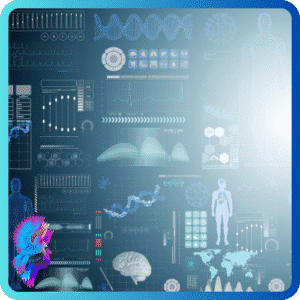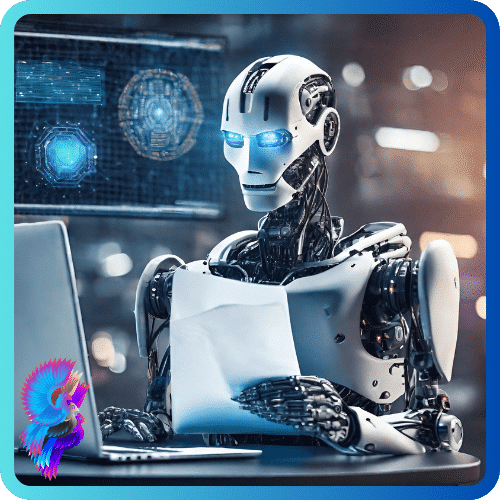Advertisements
The application of artificial intelligence (AI) in various domains such as healthcare, medical practice, beauty industry, fitness, skincare, haircare, cosmetics, and dental care has gained significant attention.
Artificial intelligence (AI) is a field within the realm of computer science that endeavors to develop machines or software capable of executing tasks typically reliant on human intelligence, encompassing faculties such as reasoning, learning, decision-making, and perception.
Artificial intelligence (AI) has found numerous applications across diverse domains, encompassing health care, medical care, beauty, fitness, skincare, haircare, cosmetics, and dental care.
This article aims to examine the present and prospective applications of artificial intelligence (AI) in these sectors and elucidate the advantages it can offer to both consumers and providers.
The application of artificial intelligence (AI) in the field of health care and medical care has gained significant attention in recent years. AI technologies have the potential to revolutionize various aspects of the healthcare industry, including diagnosis, treatment, and patient care. This emerging field holds promise for improving the accuracy and efficiency of medical practices, enhancing
Artificial intelligence (AI) has the potential to enhance the provision and caliber of healthcare and medical services through its assistance in the areas of diagnosis, screening, treatment, research, and management.
The World Health Organization (WHO) asserts that the integration of artificial intelligence (AI) has the potential to significantly enhance global health outcomes. However, this potential can only be realized if ethical considerations and human rights are prioritized throughout the entire process of AI development, implementation, and utilization.
There exist several instances of artificial intelligence (AI) applications within the realm of health and medical care.
Diagnosis and screening:
Artificial intelligence (AI) has the potential to contribute to the detection and diagnosis of various diseases, including cancer, diabetes, cardiovascular diseases, and infectious diseases. This is achieved through the analysis of medical images, laboratory tests, electronic health records, and other relevant data sources.
An example of an AI system developed by Google’s DeepMind demonstrates the ability to accurately diagnose eye diseases based on retinal scans.
Treatment:
Artificial intelligence (AI) has the potential to assist in the identification and selection of optimal treatment approaches for patients, taking into account their individual characteristics, preferences, and anticipated outcomes.
One instance of an AI system is IBM’s Watson Oncology, which offers individualized cancer treatment recommendations through the analysis of clinical notes, medical literature, and guidelines.
The utilization of artificial intelligence (AI) holds the potential to expedite the process of identifying and creating novel drugs and therapeutic approaches.
By conducting screenings of vast databases containing millions of compounds, AI can predict the effects and interactions of these substances, as well as enhance the optimization of their synthesis and delivery methods. One illustrative instance is the company known as BenevolentAI, which employs artificial intelligence (AI) technology to discern innovative drug targets and potential candidates for a wide range of diseases.
The utilization of artificial intelligence (AI) has the potential to enhance the operational performance of healthcare systems through the management of various administrative functions such as resource allocation, workflow optimization, scheduling, inventory management, billing, and other related tasks.
One illustrative instance is Olive, a corporation that offers artificial intelligence (AI) solutions aimed at streamlining diverse operational processes within hospitals.
The application of artificial intelligence (AI) in various domains such as beauty, fitness, skincare, hair care, cosmetics, and dental care has gained significant attention in recent years.
Artificial intelligence (AI) has the potential to augment the consumer experience and increase satisfaction in various domains, including beauty, fitness, skincare, hair care, cosmetics, and dental care.
By offering individualized suggestions, augmented reality, natural language processing, and various other functionalities.
Several instances of artificial intelligence (AI) applications within these domains include:
Personalized recommendations:
Artificial intelligence (AI) can provide tailored suggestions for consumers by taking into account various factors such as their skin type, hair type, body type, lifestyle, goals, and preferences.
For example:
Proven Skincare is a consumer application that employs machine learning algorithms to generate personalized skincare routines tailored to the specific skin type of each customer.
The utilization of artificial intelligence (AI) in augmented reality (AR) enables consumers to effectively visualize the appearance of various products or treatments on themselves. This is achieved through the implementation of virtual mirrors or cameras that apply realistic effects to their facial features or physical bodies.
A company that specializes in augmented reality applications called ModiFace offers one example of this technology. Among their offerings is Skin AI, a simulation application designed for the beauty and medical sectors, specifically targeting anti-aging and skin care.
Natural language processing (NLP):
Artificial intelligence (AI) has the potential to facilitate consumer-brand or consumer-provider interactions using natural language, encompassing both spoken and written communication.
Sephora provides a chatbot that is capable of responding to inquiries regarding products, dispensing beauty advice, and facilitating appointment scheduling.
Additional features:
In addition to its primary functions, artificial intelligence (AI) can also assist individuals in various domains related to beauty, fitness, skincare, hair care, cosmetics, and dental care. These supplementary capabilities include the ability to monitor and track user progress, assess health conditions, offer constructive feedback, and generate relevant content.
The L’Occitane Group recently introduced a novel skincare system called ‘Duolab’. This innovative device, which utilizes artificial intelligence, is designed to diagnose an individual’s skin condition in real time and subsequently offer a tailored facial care solution in the form of freshly blended cream.
In conclusion:
Artificial intelligence (AI) is revolutionizing multiple domains, including health care, medical care, beauty, fitness, skincare, hair care, cosmetics, and dental care, by offering a wide range of advantages for both consumers and providers.
Advertisements






















